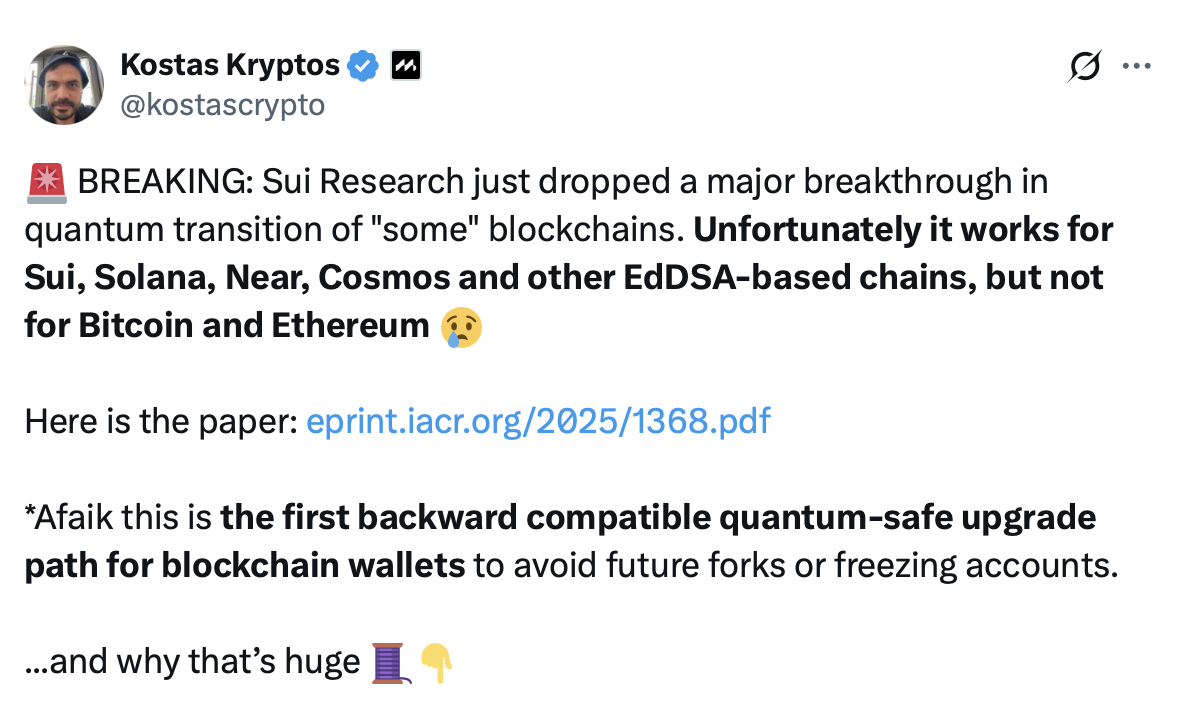Amit Mehra, a partner at venture capital firm Borderless Capital, said quantum computing is still in its “early stages” but could pose a threat to Bitcoin and other proof-of-work algorithms in the near future.
Speaking to Cointelegraph at the 2025 Global Blockchain Congress Dubai, Mehra, when asked what trends Borderless Capital is following, said the company is “deeply digging into quantum computing” and investigating how companies are developing quantum-resistant technologies.
Mehra said it will take until the end of this century to develop quantum computing. Still, he said, people tend to underestimate the rapid evolution of technology.
“Given the recent advances that have taken place in chip technology, computing technology, and the power to perform computing in a distributed manner, it (quantum computing) is definitely an issue, if not immediate (…) in the very near future.”
Quantum computing uses the principles of quantum physics to process information at speeds far greater than today’s machines. Although this technology is still in its infancy, it could eventually break the encryption that protects cryptocurrencies and other sensitive data, forcing developers to create new post-quantum security standards.
Charles Edwards, founder of quantitative Bitcoin and digital asset fund Calprior, said the situation was far more urgent and argued that the industry needs to adopt solutions as soon as possible before it is too late.
On October 15th, he posted on X: “If Bitcoin doesn’t solve quantum next year, gold will continue to outperform it forever.”
“This is an emergency and we need to choose a solution next year,” he wrote.

sauce: charles edwards
Related: Google announces quantum advantage, 13,000 times faster than supercomputers
Prepare for quantum threats
Mehra and Edwards are not alone in their concerns about quantum computing.
In July, SUI Research announced a new cryptographic framework designed to protect blockchains from quantum computing threats without the need for hard forks, new addresses, or key resets.
But while the new solution works for SUI, Near, Solana, Cosmos, and other blockchain networks, it doesn’t solve the problem for Bitcoin or Ethereum.

source: costas cipher
Meanwhile, the US government is reportedly considering investing in quantum computing to protect its national security interests.
The U.S. Department of Commerce may allocate funding to this nascent technology to stay competitive with China, Bloomberg reported in October.
magazine: Bitcoin white paper celebrates 17th anniversary as BTC’s first Red October in 7 years approaches










